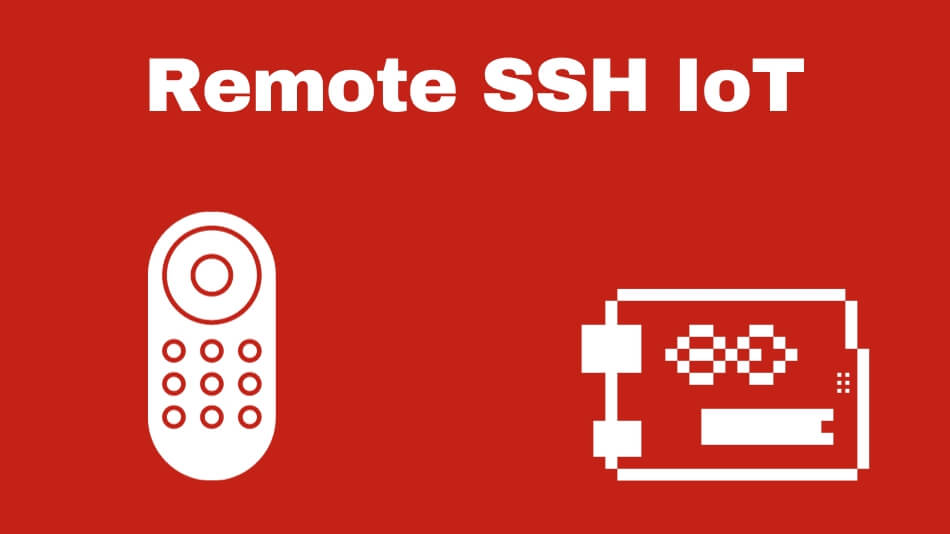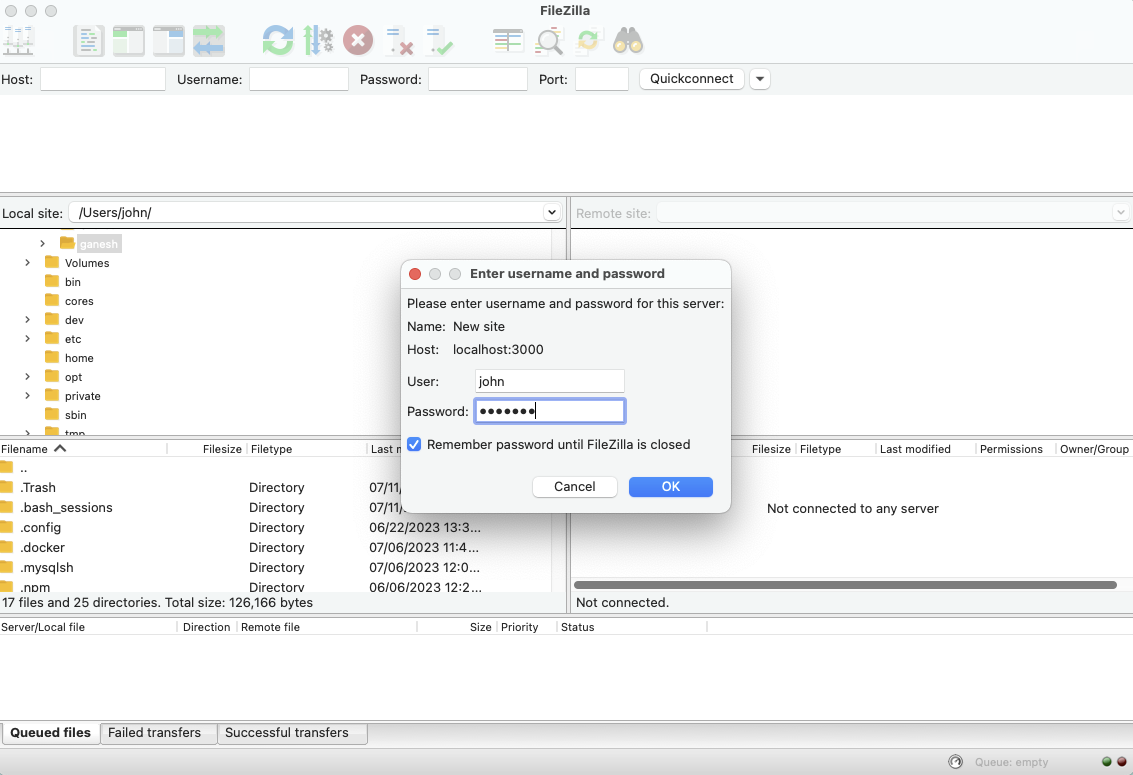Hey there, tech-savvy friend! Let's dive right into the world of IoT remote SSH connections on Windows 10. If you're looking to set up a secure, seamless, and free connection, you've come to the right place. Whether you're a beginner or a seasoned pro, this guide will walk you through everything you need to know. So, grab your coffee, and let's get started!
IoT remote SSH connection free on Windows 10 is not just about connecting devices—it’s about empowering you to manage your systems remotely with ease. Imagine controlling your home automation setup, accessing files, or troubleshooting issues from anywhere in the world. Sounds cool, right? Well, it’s totally doable with the right tools and techniques.
Before we dive deep into the nitty-gritty, let's talk about why this topic matters. With the rise of IoT devices, the need for secure and efficient remote access has never been greater. Windows 10 offers some amazing features that make setting up an SSH connection a breeze. Plus, it’s free! Who doesn’t love saving money while staying connected?
Read also:Why Isnt Howard Stern Live Today Unpacking The Mystery Behind The King Of All Media
Understanding IoT and SSH: A Quick Overview
Let’s break it down for you. IoT, or the Internet of Things, refers to the network of devices that communicate with each other over the internet. SSH, on the other hand, stands for Secure Shell, a protocol that allows you to securely connect to and manage remote devices. Combining these two creates a powerful setup for managing IoT devices.
Here’s why you should care about IoT remote SSH connections:
- Enhanced security for your devices
- Easy remote access from anywhere
- Cost-effective solution for managing IoT setups
- Compatibility with Windows 10 and other platforms
Now that we’ve got the basics covered, let’s move on to the good stuff!
Setting Up SSH on Windows 10
One of the coolest things about Windows 10 is that it comes with built-in support for SSH. Yep, you heard that right! No need to download third-party software unless you want extra features. Here’s how you can set it up:
Step 1: Enable the OpenSSH Client
First things first, you need to enable the OpenSSH Client feature on your Windows 10 machine. Here’s how:
- Go to Settings > Apps > Optional Features
- Click on "Add a feature" and search for "OpenSSH Client"
- Select it and hit "Install"
Once it’s installed, you’re ready to roll!
Read also:Kai Trump Lisp The Story Behind The Stutter And What It Means
Step 2: Install the OpenSSH Server
If you want to allow remote connections to your Windows 10 machine, you’ll also need to install the OpenSSH Server:
- Head back to the Optional Features menu
- Search for "OpenSSH Server" and install it
- Restart your computer when prompted
Boom! You’ve now got both the client and server ready to go.
Connecting to IoT Devices via SSH
Now that your Windows 10 machine is all set up, it’s time to connect to your IoT devices. Here’s a step-by-step guide:
Step 1: Get the Device’s IP Address
Every device on your network has a unique IP address. You’ll need this to establish an SSH connection. Here’s how to find it:
- On your IoT device, go to the network settings
- Look for the IP address listed there
Got it? Great! Let’s move on.
Step 2: Open the Command Prompt
Time to fire up the Command Prompt on your Windows 10 machine:
- Press the Windows key and type "cmd"
- Select "Command Prompt" from the list
Easy peasy, right?
Step 3: Enter the SSH Command
Now comes the fun part. Type the following command into the Command Prompt:
ssh username@IP_address
Replace "username" with the username for your IoT device and "IP_address" with the actual IP address you found earlier. Hit Enter, and you’re good to go!
Securing Your IoT Remote SSH Connection
Security is key when it comes to remote connections. Here are some tips to keep your IoT remote SSH connection safe:
1. Use Strong Passwords
A strong password is your first line of defense. Avoid using common words or easily guessable combinations. Mix it up with numbers, symbols, and uppercase letters.
2. Enable Two-Factor Authentication
Two-factor authentication adds an extra layer of security by requiring a second form of verification, like a code sent to your phone.
3. Limit Access
Only allow trusted IP addresses to connect to your IoT devices. This can be done through your router’s settings.
With these tips, you’ll have a rock-solid security setup for your IoT remote SSH connection.
Free Tools for Enhancing Your IoT SSH Experience
While Windows 10 offers built-in SSH capabilities, there are some free tools that can enhance your experience:
1. PuTTY
PuTTY is a popular SSH client that offers additional features like session saving and customizable keyboard shortcuts.
2. WinSCP
WinSCP is a free SFTP client that allows you to transfer files securely between your Windows 10 machine and your IoT devices.
3. Mobaxterm
Mobaxterm is an all-in-one tool that combines SSH, FTP, and terminal functionalities into one user-friendly interface.
These tools can make managing your IoT devices even easier and more efficient.
Troubleshooting Common Issues
Even with the best setup, things can go wrong sometimes. Here are some common issues and how to fix them:
Issue 1: Unable to Connect
Check the following:
- Ensure the OpenSSH Server is running on your Windows 10 machine
- Verify the IP address of your IoT device
- Make sure there are no firewall blocks
Issue 2: Authentication Failed
Double-check:
- Your username and password
- That SSH is enabled on the IoT device
Issue 3: Slow Connection
Try:
- Restarting your router
- Using a wired connection instead of Wi-Fi
These troubleshooting tips should help you resolve most issues quickly.
Best Practices for IoT Remote SSH Connections
Here are some best practices to keep in mind:
1. Regularly Update Your Devices
Keep your IoT devices and Windows 10 machine up to date with the latest software and security patches.
2. Monitor Connections
Keep an eye on who’s accessing your devices and when. This can help you detect any suspicious activity early on.
3. Document Your Setup
Keep a record of your device configurations, IP addresses, and login credentials in a secure location.
Following these best practices will ensure a smooth and secure IoT remote SSH experience.
Future Trends in IoT and SSH
The world of IoT and SSH is constantly evolving. Here are some trends to watch out for:
1. Increased Integration
More devices are being designed with built-in SSH capabilities, making it easier than ever to set up remote connections.
2. Enhanced Security Features
New security protocols and encryption methods are being developed to protect IoT devices from cyber threats.
3. AI-Powered Management
Artificial intelligence is being used to automate and optimize IoT device management, saving time and reducing errors.
Stay tuned for these exciting developments and keep your skills sharp!
Conclusion
And there you have it, folks! A comprehensive guide to setting up an IoT remote SSH connection free on Windows 10. From understanding the basics to troubleshooting common issues, we’ve covered it all. Remember, security is paramount, so always follow best practices to keep your devices safe.
Now it’s your turn! Take what you’ve learned and start managing your IoT devices like a pro. Don’t forget to share this article with your friends and leave a comment below if you have any questions or tips of your own. Happy connecting!
Table of Contents
- Understanding IoT and SSH: A Quick Overview
- Setting Up SSH on Windows 10
- Connecting to IoT Devices via SSH
- Securing Your IoT Remote SSH Connection
- Free Tools for Enhancing Your IoT SSH Experience
- Troubleshooting Common Issues
- Best Practices for IoT Remote SSH Connections
- Future Trends in IoT and SSH
- Conclusion


